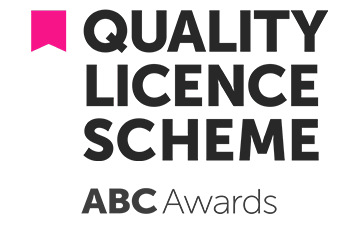

This course will offer the learner a rewarding way of learning everything required to enhance their animal psychology and behaviour knowledge base.
Looking after pets needs and understanding them is very rewarding. This course will cover the natural instincts and behaviours of dogs, cats and other common pets. It includes domestication, and how to prevent psychiatric issues. You will also learn how pets think, learn and feel, why they exhibit a certain behaviours and how to read their communication signs.
This course is ideal for anyone, whether they are considering a career working with pets, pet owners, as well as people looking to provide a service in the growing need for pet psychologists or someone who wants to gain a much better understanding and knowledge of pet psychology.
Unit 1 – Pet Evolution
Topics:
By the end of this unit the learner will be able to:
Unit 2 – Dog Communication
Topics:
By the end of this unit the learner will be able to:
Unit 3 – Canine Normal Behaviour
Topics:
By the end of this unit the learner will be able to:
Unit 4 – Understanding Canine Actions
Topics:
By the end of this unit the learner will be able to:
Unit 5 – Common Canine Psychiatric Challenges
Topics:
By the end of this unit the learner will be able to:
Unit 6 – Canine Anxiety, Fear and Aggression
Topics:
By the end of this unit the learner will be able to:
Unit 7 – Cat Communication
Topics:
By the end of this unit the learner will be able to:
Unit 8 – Feline Normal Behaviour
Topics:
By the end of this unit the learner will be able to:
Unit 9 – Understanding Feline Actions
Topics:
By the end of this unit the learner will be able to:
Unit 10 – Common Feline Psychiatric Challenges
Topics:
By the end of this unit the learner will be able to:
Unit 11 – Feline Anxiety, Fear and Aggression
Topics:
By the end of this unit the learner will be able to:
Unit 12 – Rabbit Psychology
Topics:
By the end of this unit the learner will be able to:
This course has been accredited by Online Academies. On successful completion of this course you will be able to download or print off a PDF of your Online Academies Certificate (please note: you will also be given the opportunity to have a hard copy of the certificate printed off and posted out to you for a small additional charge). If you would like to view a sample of the certificate, please click here.

Online Academy work with Quality Licence Scheme (Quality Licence Scheme). The Quality Licence Scheme is part of the Skills and Education Group, a charitable organisation that unites education and skills-orientated organisations that share similar values and objectives. With more than 100 years of collective experience, the Skills and Education Group’s strategic partnerships create opportunities to inform, influence and represent the wider education and skills sector.
At the conclusion of each module there is a multiple choice question assessment. This will help you remember the main points of the lesson and act as a check that you have retained the essential knowledge and understanding of that particular section. The results can be seen instantaneously and you can correct wrong answers. When the result is satisfactory you can progress to the next module.
Once you have successfully completed all the modules for your course you will be awarded:
A Diploma issued by Online Academies



